These foods look harmless, but some have surprises you don’t see coming.
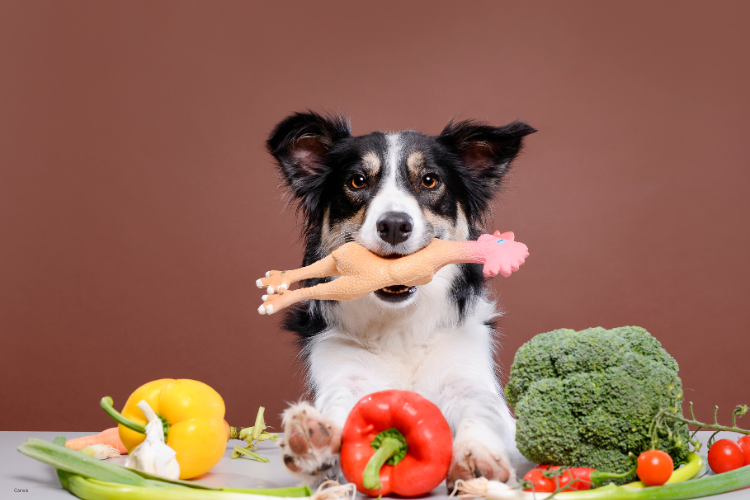
Dogs look at everything you eat like it’s made just for them, and it’s tempting to share a bite of whatever is in your hand. Fruits and vegetables feel safe, but not all are as friendly as they seem. Some are great in small doses, others are absolute no-gos. Here’s what really happens when dogs meet some of the most common produce in your kitchen.
1. Bananas might not be the slam-dunk snack you think.
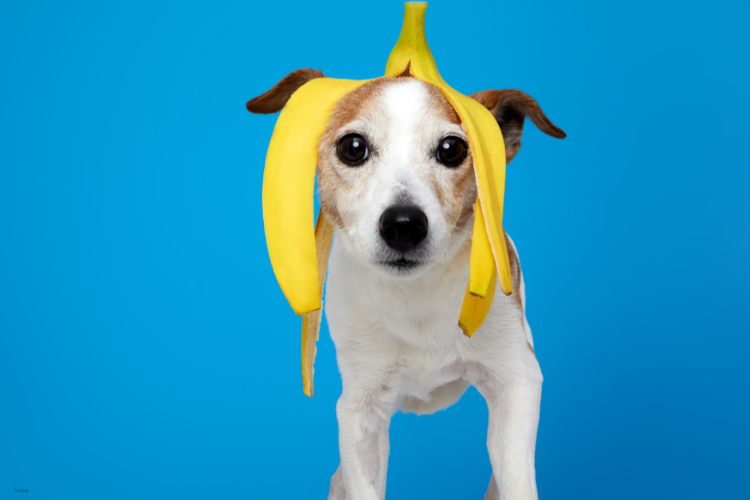
Bananas seem like the perfect sweet treat, and dogs love the flavor, but they’re not an all-you-can-eat option. According to the American Kennel Club, they’re fine in moderation but shouldn’t replace regular dog food or be a daily indulgence. Too much can upset their stomach and add unnecessary sugar to their diet. A slice or two occasionally works as a reward, but this isn’t a fruit to toss your dog every day.
2. Grapes and raisins are never a safe experiment.

These tiny, sweet fruits can cause severe kidney issues in dogs, even in small amounts. As stated by the ASPCA Animal Poison Control Center, reactions vary, making it impossible to know which dogs will be affected and how severely. The safest option is to keep grapes and raisins completely out of your dog’s reach. If your dog grabs one accidentally, it’s considered a veterinary emergency, not something to wait out and see.
3. Apples come with one part you need to ditch first.
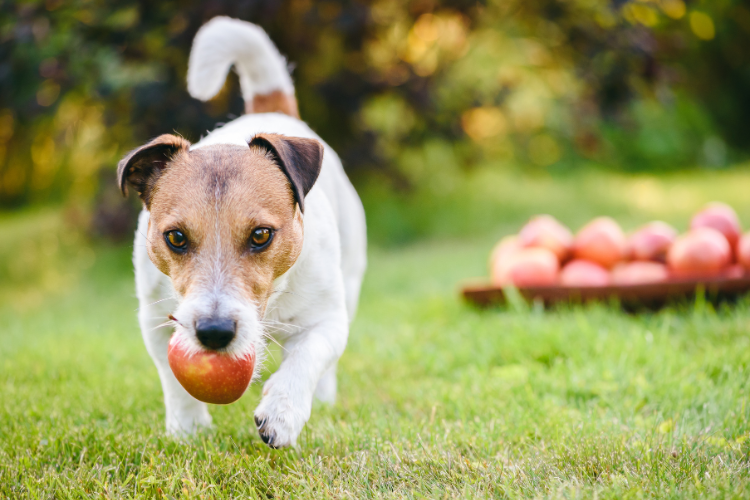
Apples are loaded with vitamins and fiber and are often used as crunchy training treats. Reported by the American Veterinary Medical Association, the core and seeds contain compounds that can be harmful if eaten in large quantities. Cutting them into seedless slices solves the problem and lets your dog enjoy a crisp snack without any risk. This is one of those produce items where a little prep makes all the difference.
4. Carrots are more than just a crunchy chew toy.
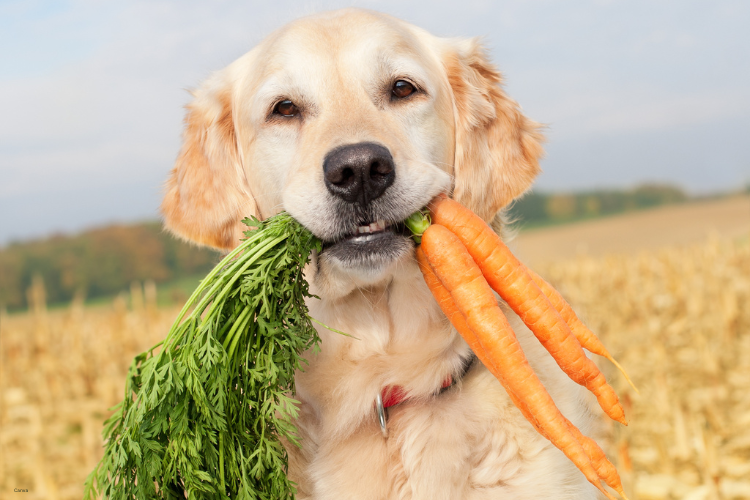
Carrots are popular with dog owners because they’re low in calories and fun for dogs to gnaw on. Their natural crunch makes them a satisfying alternative to high-calorie biscuits. Some owners even chill them for teething puppies or summer treats. They’re simple, inexpensive, and easy to prep—just remember to cut them into manageable pieces so your dog doesn’t choke while trying to tackle a whole stick at once.
5. Broccoli can catch owners off guard in large servings.
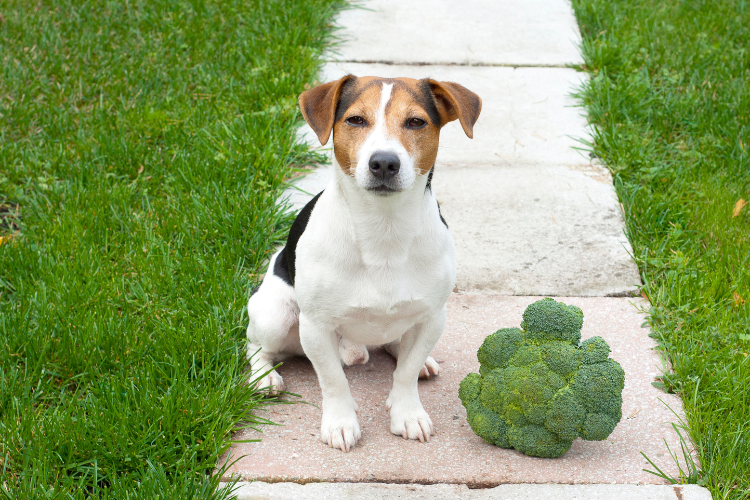
Broccoli is nutrient-rich and safe in moderation, but there’s a limit before it becomes a problem. Too much of it can lead to digestive issues like gas or stomach upset, which makes it one of those vegetables that’s better in small amounts. Many owners steam it for easier digestion, but raw broccoli is fine in very small quantities. The key here is size—tiny florets are fine, big bowls are not.
6. Sweet potatoes win points for being naturally dog-friendly.
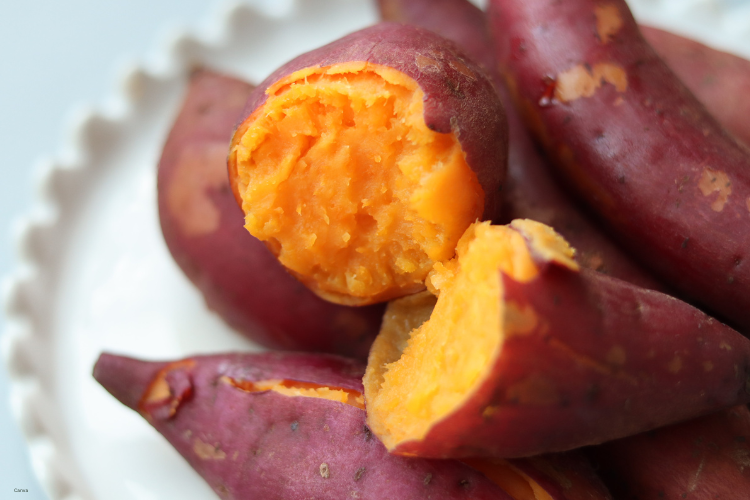
Sweet potatoes are common in dog food for a reason, but serving them at home still requires some thought. They need to be cooked and plain—no butter, sugar, or seasoning—and served in small chunks or mashed. Raw sweet potatoes are tough to digest and can pose a choking hazard. When prepared right, though, they’re a great occasional treat that dogs usually devour without hesitation.
7. Avocados are trickier than they look.
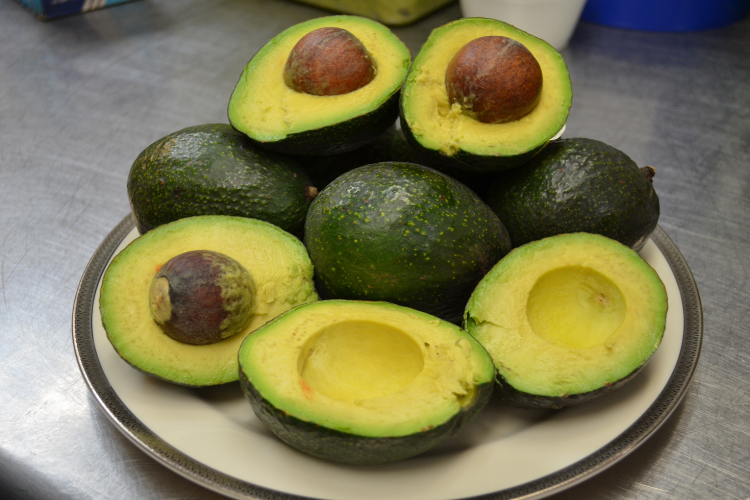
Avocados have a reputation for being superfoods, but for dogs, they’re complicated. The pit and skin are choking hazards and contain substances that aren’t dog-friendly, and even the flesh can cause issues for some pets. While small amounts might not be toxic to every dog, most vets suggest skipping them entirely. With so many safer alternatives available, avocados are one fruit that’s not worth the gamble.
8. Blueberries are a tiny treat most dogs adore.
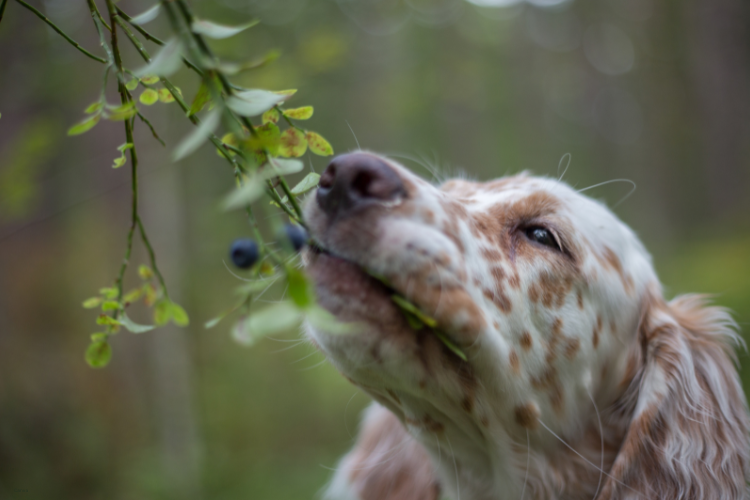
Blueberries are one of the safest fruits for dogs and don’t require any complicated prep. Their small size makes them great for training, and they can be served fresh or frozen. Dogs love the sweet-tart flavor, and owners appreciate how easy they are to toss into a bowl or hand-feed. Blueberries are one of those rare snacks where convenience and safety line up perfectly.
9. Spinach isn’t the straightforward green it seems.
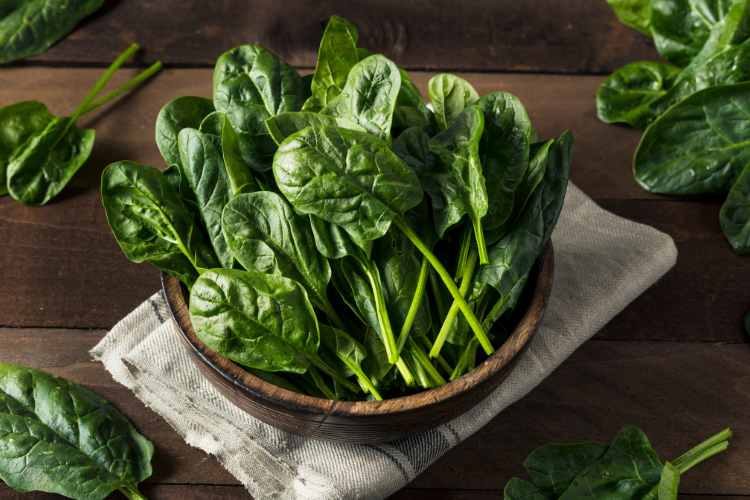
Spinach is often considered a health booster, but for dogs, it comes with caveats. It’s nutrient-rich, but it also contains natural compounds that can cause trouble in large amounts. Small servings now and then are fine, but it’s not something to serve as a regular part of a dog’s diet. Lightly steaming it makes it easier to digest and reduces some of the natural compounds that cause concern.
10. Cucumbers are an easy win for most dogs.
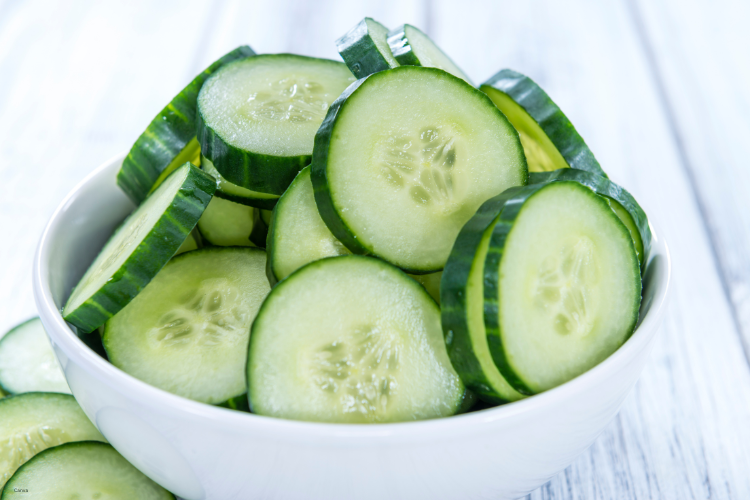
Cucumbers are mostly water, making them a refreshing, low-calorie snack for hot days or for dogs that need to lose weight. They’re safe in both small slices or spears, and most dogs enjoy the crisp crunch. Because they’re so mild, cucumbers are one of the least risky vegetables you can share with your pet, provided they’re cut into pieces small enough to prevent choking.
